
Gondwana Research
Scope & Guideline
Illuminating the Path of Geological Research and Education
Introduction
Aims and Scopes
- Tectonic Evolution and Geodynamics:
Research in this area emphasizes the tectonic history and geodynamic processes of Gondwana and its associated regions, including studies on subduction, collision, and continental fragmentation. - Paleogeography and Paleoenvironmental Reconstructions:
Studies often involve reconstructing ancient landscapes and environments through geochemical and isotopic analyses, which provide insights into climatic and ecological changes over geological time. - Mineralization and Economic Geology:
The journal publishes work on the genesis of ore deposits and mineral systems, linking geological processes to economic geology, particularly in the context of Gondwana. - Geochronology and Isotope Geochemistry:
Research utilizing various isotopic systems and geochronological methods to date geological events and understand crustal evolution is a key focus area. - Sedimentology and Stratigraphy:
Papers often explore sedimentary processes and the stratigraphic record, providing insights into the depositional environments and tectonic settings of ancient basins. - Paleoecology and Biostratigraphy:
The journal includes studies on fossil records and their implications for understanding evolutionary processes and past biodiversity. - Climate Change and Environmental Impact:
Research addressing the impacts of historical climate change on geological formations, biodiversity, and sedimentary records is increasingly prevalent.
Trending and Emerging
- Integrated Geochronological Techniques:
There is a growing trend towards employing multi-method geochronology, including U-Pb zircon dating and Lu-Hf isotopes, to gain comprehensive insights into the timing and nature of geological events. - Impact of Climate Change on Geological Records:
Research examining the effects of climate change on sedimentary processes and fossil records is increasingly relevant, reflecting a broader societal interest in understanding past climate impacts. - Technological Innovations in Geoscience:
The application of machine learning and advanced computational techniques in geological modeling and predictive analytics is gaining popularity, enabling more sophisticated analyses of geological data. - Holistic Approaches to Mineralization Studies:
There is an emerging interest in understanding the interplay between tectonics, magmatism, and mineralization processes, moving towards a more integrated view of economic geology. - Environmental Sustainability and Geoscience:
Research linking geological studies to environmental sustainability, including the assessment of natural resources and their management, is increasingly prominent. - Transdisciplinary Studies on Human Impact:
The journal is seeing a rise in studies that explore the intersection of geological processes with human activities, particularly in the context of resource extraction and environmental degradation.
Declining or Waning
- Traditional Petrology Studies:
There has been a noticeable decrease in the publication of studies focusing solely on basic petrological descriptions and classifications, as the field shifts towards more integrated approaches involving geochemistry and geochronology. - Static Geological Models:
Research that relies solely on static models of geological formations without considering dynamic processes or modern analytical techniques has seen a decline, as the community moves towards more complex and interactive models. - Local Case Studies without Broader Context:
Papers that focus exclusively on localized geological phenomena without connecting them to broader tectonic or environmental issues are becoming less common, as the journal emphasizes studies with wider implications. - Purely Descriptive Biostratigraphy:
Studies that merely describe fossil assemblages without integrating them into broader paleoecological or evolutionary frameworks are less frequent, indicating a shift towards more analytical approaches.
Similar Journals

BASIN RESEARCH
Navigating the Complexities of SedimentologyBasin Research, published by Wiley, is a leading journal in the field of Geology, with a distinguished reputation affirmed by its Q1 ranking in the 2023 category of Earth and Planetary Sciences. Since its inception in 1988, the journal has been at the forefront of fundamental and applied research surrounding sedimentary basins, delving into their evolution, architecture, and dynamics. With an impressive Scopus rank of #36 out of 321, placing it in the 88th percentile, Basin Research serves as a critical platform for researchers, professionals, and students engaged in advancing our understanding of geological processes and their implications for natural resources and environmental policies. The journal is accessible to a global audience and emphasizes high-quality, peer-reviewed articles that cover a diverse array of topics from basin analysis to sedimentology and beyond. For those interested in deepening their insights into this vital area of study, Basin Research stands as an invaluable resource in the academic landscape.

JOURNAL OF THE GEOLOGICAL SOCIETY OF INDIA
Advancing geological knowledge, one study at a time.JOURNAL OF THE GEOLOGICAL SOCIETY OF INDIA, published by Springer India, serves as a pivotal platform for researchers and practitioners in the field of geology. Established in 1979, this journal has been instrumental in advancing geological research throughout India, showcasing both regional studies and cutting-edge global research. With its Category Quartile ranking of Q3 in the geology category for 2023, and a significant Scopus rank of 171 among 321 journals in Earth and Planetary Sciences, it remains a respected source of scholarly activity. The journal is dedicated to the dissemination of original research articles, reviews, and case studies that encapsulate the dynamic scope of geological science, thus contributing to the understanding of geological phenomena. Although currently not offering open access, the journal maintains a commitment to high-quality scholarship and aims to engage a diverse readership, enhancing the knowledge and practice of geology across various disciplines.
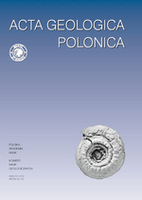
ACTA GEOLOGICA POLONICA
Advancing geological knowledge for a sustainable future.ACTA GEOLOGICA POLONICA is a distinguished journal published by the Polska Akademia Nauk, in collaboration with the University of Warsaw's Geology Department. Since its inception, it has served as a vital platform for disseminating innovative research in the field of Geology, reflecting a commitment to advancing scientific knowledge in Earth and planetary sciences. With an ISSN of 0001-5709 and an E-ISSN of 2300-1887, this journal provides a rigorous review process and is classified in the Q3 quartile for Geology as of 2023, indicating its growing influence in the discipline. Despite not being open access, the journal facilitates meaningful contributions that span a range of geological topics from fundamental research to applied sciences, thereby enriching the academic landscape. Researchers, professionals, and students alike are encouraged to engage with the valuable findings and discussions contained within its pages, which continue to shape the future of geological inquiry.

Geosphere
Exploring Earth's Layers: Where Knowledge Meets DiscoveryGeosphere is a premier open access journal published by the Geological Society of America, Inc., dedicated to advancing the fields of geology and stratigraphy. Since its inception in 2005, this journal has established itself as a critical platform for sharing high-quality research, evidenced by its robust positioning in the 2023 Scopus rankings, where it holds the 12th rank in stratigraphy and 75th in geology. With an impressive impact factor and a commitment to open access since 2018, Geosphere facilitates the dissemination of significant findings to a global audience, making it an essential resource for researchers, professionals, and students alike. The journal's scope includes a wide range of topics related to Earth and Planetary Sciences, encouraging interdisciplinary collaboration and innovation. Based in the United States, Geosphere continues to foster a community dedicated to understanding the Earth's processes and resources, ensuring that it remains at the forefront of geological research.
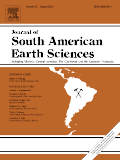
JOURNAL OF SOUTH AMERICAN EARTH SCIENCES
Unveiling Earth's Secrets Through South American LensesJOURNAL OF SOUTH AMERICAN EARTH SCIENCES is a premier interdisciplinary journal dedicated to publishing high-quality research in the fields of Earth-Surface Processes, Geology, and Paleontology, making it an essential resource for scientists and researchers focused on South American geology and its diverse geological phenomena. Published by Pergamon-Elsevier Science Ltd in the United Kingdom, this journal has been instrumental in disseminating groundbreaking studies since 1988, showcasing contributions that push the boundaries of knowledge in Earth and Planetary Sciences. With an impressive Scopus ranking—positioning it in the 74th percentile for Paleontology and 71st for Geology—this journal not only reflects robust academic quality but also its commitment to addressing critical geological challenges in South America. Researchers will appreciate its objective of advancing understanding of geological processes while providing insights into past, present, and future Earth environments. Although available through traditional subscription models, the journal's vast repository of articles enriches the academic landscape, facilitating the sharing of vital research among professionals, students, and geological practitioners.
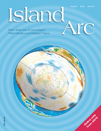
ISLAND ARC
Charting New Territories in Geological ResearchISLAND ARC is a prestigious journal dedicated to the field of Geology, published by WILEY. With a strong focus on the geology of island arcs and other related research, it serves as a vital resource for scholars, professionals, and students interested in earth and planetary sciences. The journal, which has been in circulation since 1992, is indexed in Scopus and holds a commendable Q2 ranking in its category for 2023, indicating its significant impact within the geological community. The journal’s ISSN is 1038-4871 and its E-ISSN is 1440-1738. Although it does not currently offer open access, it remains a crucial platform for disseminating high-quality research relevant to geological phenomena, promoting interdisciplinary collaborations and advancing our understanding of geological processes. With an address in Hoboken, New Jersey, ISLAND ARC continues to enhance its global influence and scholarly contributions through rigorous peer review and a commitment to excellence.
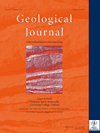
GEOLOGICAL JOURNAL
Illuminating the path of geological research for over seven decades.GEOLOGICAL JOURNAL, an esteemed publication by WILEY, has been at the forefront of geological research since its inception in 1951. With an ISSN of 0072-1050 and E-ISSN of 1099-1034, this journal serves as a vital platform for disseminating high-quality, peer-reviewed research in the field of geology. Operating out of the United Kingdom, the journal proudly features a Scopus rank of 80 out of 321 in the Earth and Planetary Sciences category, reflecting its commitment to scholarly excellence, with a 2023 category quartile ranking of Q2. As part of its innovative approach, GEOLOGICAL JOURNAL seeks to foster interdisciplinary collaborations, advancing our understanding of earth processes, materials, and history. Although it does not offer open access options, its robust subscription model ensures that both professionals and students have access to groundbreaking insights. With a publication history that spans over seven decades, the GEOLOGICAL JOURNAL continues to be an indispensable resource for the global geological community, encouraging discoveries that shape our comprehension of the planet.
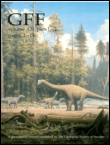
GFF
Unearthing Insights, Shaping the Future of Earth Sciences.GFF is a prestigious academic journal dedicated to advancing research in the fields of Geology and Paleontology. Published by Taylor & Francis Ltd in the United Kingdom, GFF serves as a vital platform for disseminating innovative findings and fostering discussions among researchers, professionals, and students alike. With a noteworthy impact factor reflecting its significance in the scientific community, GFF has achieved Q2 ranking in both Geology and Paleontology, underscoring its commitment to high-quality scholarship. The journal has been operational since 1872, accumulating a rich history of contributing to our understanding of earth sciences. It currently ranks #133 out of 321 in Earth and Planetary Sciences - Geology, and #50 out of 113 in Paleontology according to Scopus rankings. Although it does not offer an open access option, GFF remains accessible through various academic databases, ensuring that cutting-edge research reaches a wide audience. Its comprehensive scope aims to explore critical advancements in geological and paleontological sciences, making it an essential resource for those committed to exploring the intricacies of our planet’s past and present.
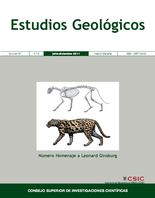
ESTUDIOS GEOLOGICOS-MADRID
Connecting Researchers with Earth’s Secrets Since 1976.ESTUDIOS GEOLOGICOS-MADRID is a prominent journal in the field of geology, published by the esteemed Consejo Superior de Investigaciones Científicas (CSIC) in Spain. Established in 1976, this Open Access journal has been a vital resource for researchers and professionals since its inception. With an impact factor reflecting its contribution to the Earth and Planetary Sciences community, ESTUDIOS GEOLOGICOS-MADRID currently holds a Q3 category ranking in Geology as of 2023, showcasing its relevance and quality within the discipline. The journal publishes a diverse array of geological studies, ensuring wide-reaching access to significant research findings, thereby promoting collaboration and knowledge sharing. Established as a platform for both foundational research and applied geology, this journal fosters academic growth and contributes to understanding the Earth’s processes. Researchers, professionals, and students are encouraged to explore its extensive archive, which includes publications from 1976 to the present. For more information, visit the journal's editorial office at Editorial CSIC, C/VITRUVIO 8, 28006 MADRID, SPAIN.

BULLETIN OF THE GEOLOGICAL SOCIETY OF DENMARK
Bridging Disciplines in the Study of Earth ProcessesBULLETIN OF THE GEOLOGICAL SOCIETY OF DENMARK, published by the Geological Society of Denmark, serves as a key platform for the dissemination of original research and comprehensive reviews related to geological studies in Denmark and beyond. With an ISSN of 2245-7070, this journal provides a significant avenue for sharing findings that contribute to our understanding of geological processes, resources, and the history of the Earth. Although it operates under traditional access options, the journal encourages a rich scholarly dialogue among researchers, professionals, and students alike. Its impact is evident in the broad scope it covers, catering to diverse areas of geology, including but not limited to sedimentology, paleontology, and environmental geology. By fostering an environment of knowledge sharing, the BULLETIN OF THE GEOLOGICAL SOCIETY OF DENMARK is not just a journal; it is a vital resource for anyone invested in advancing geological science.